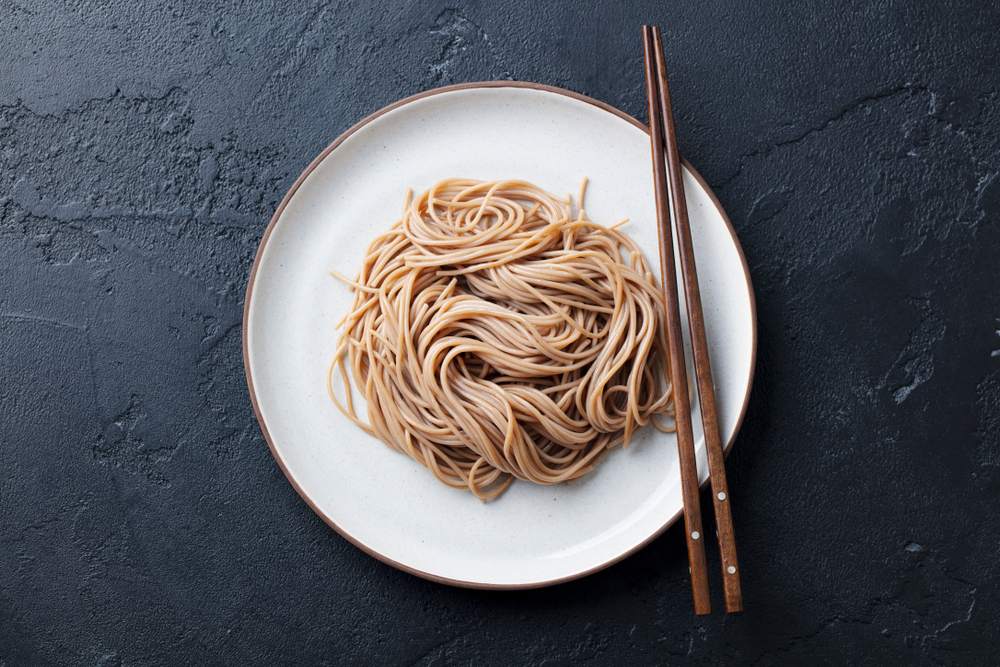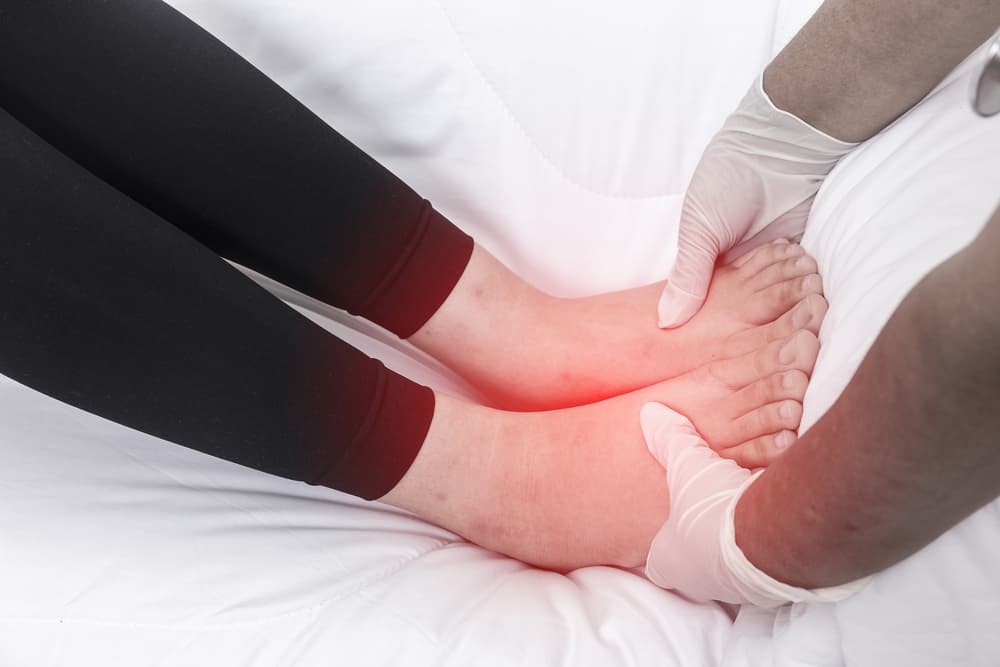Contents:
- Medical Video: Chicken Japanese Soba Noodle Stir Fry
- Safe or not soba noodles for health?
- What are the nutrients in buckwheat noodles?
- How to treat buckwheat noodles that are good for health
Medical Video: Chicken Japanese Soba Noodle Stir Fry
Soba noodles are a typical food from Japan. Soba is a noodle made from Japanese buckwheat or the Latin name is grains Phagopyrum esculentum. These seeds are like wheat, but these grains are free of gluten, unlike wheat in general. So, is this noodle safe for health? Or is this noodle not safe for body health? Come on, try to see the reviews below.
Safe or not soba noodles for health?
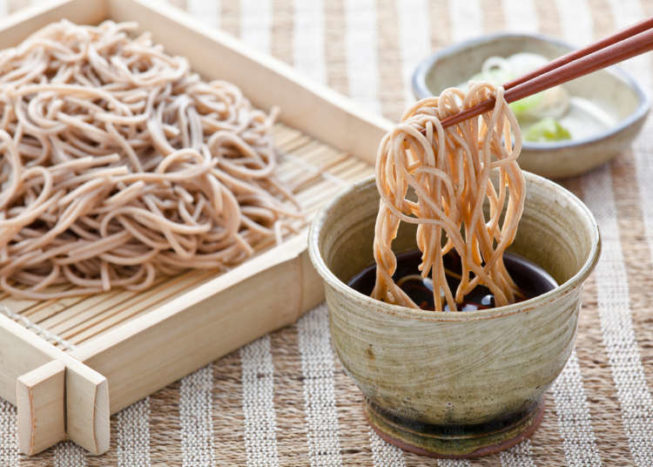
Soba noodles are noodles made from buckwheat flour and water. This is the main composition of buckwheat noodles, buckwheat flour and water only. This authentic soba noodle is also called juwari soba.
However, nowadays most people make noodles from soba with a mixture of flour and salt. This type of soba noodle is usually made with a composition of 80 percent buckwheat flour and 20 percent flour, which is often referred to as hachiwari.
Nowadays you can find buckwheat noodles everywhere even though they are originally from Japan. Making noodles from buckwheat has also been created. Even some noodles from buckwheat contain more flour than buckwheat flour like the previous recipe. The main ingredient is buckwheat noodles instead of buckwheat flour but flour.
Well, the variation in the composition of soba noodles is what determines whether or not safe buckwheat noodles for your health. In general, noodles from buckwheat are certainly safe for health, as a source of carbohydrates. However, if you consume soba noodles containing high flour and its salt content, of course you have to be more careful and reduce the amount.
It's not that you can't eat flour, but wheat flour adds calories to your noodles. Likewise with sodium in salt, too much sodium content in your buckwheat noodles can increase the risk of hypertension (high blood pressure).
What are the nutrients in buckwheat noodles?
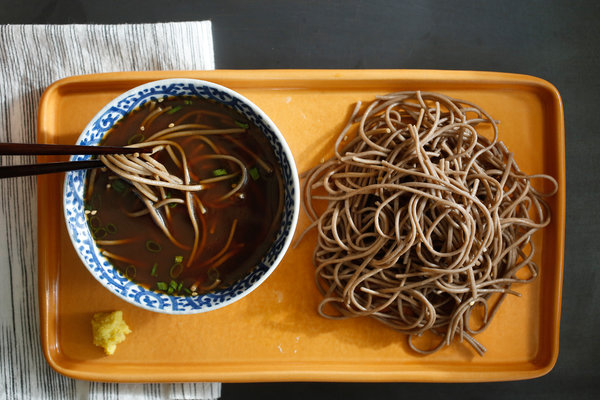
Because buckwheat noodles are available in many variations, when buying one of these types of noodles you should check the nutritional label first. Each brand has a different composition, depending on what ingredients are used to make the buckwheat noodles.
To be clearer, here you can see the nutritional value of 100 percent authentic buckwheat noodles:
- Energy (calories): 192 calories
- Protein: 8 grams
- Carbohydrates: 42 grams
- Fiber: 3 grams
- Fat: 0 grams
Judging from its nutritional value, buckwheat is a very low-fat noodle. This is perfect for those of you who are reducing the amount of fat to prevent a rise in body weight.
Proteins in this noodle are also high in number and are known to also contain lysine amino acids which are higher than wheat. Therefore, noodles from buckwheat can be a good choice for vegetarians to help meet their protein needs. This protein is very important for cell growth and repairing cells throughout the body that are damaged, and also building muscle.
In addition, for people who experience gluten intolerance, buckwheat noodles are safe for consumption because they do not contain gluten. Unless you consume soba noodles containing wheat flour.
No less important, buckwheat is also a good source of manganese minerals for the body. By consuming about 1 cup of noodles can meet 24 percent of the needs of manganese minerals in adult women, and can meet 18 percent of manganese needs in adult men.
Manganese is an important mineral that maintains the balance of the body's metabolism, maintains the health of the nervous system, and plays an important role in making hormones in the body.
Buckwheat is also a good source of vitamin B1 or thiamin in the body. Vitamin B1 is needed for energy metabolism and supports cell growth.
In addition to its nutrients, buckwheat also has an anti-inflammatory effect because the levels of buckwheat flavonoids are quite high. That way, buckwheat can help maintain heart health and blood vessels from inflammation.
According to 15 previous studies, in healthy people or who have a risk of heart disease, consuming 40 grams of buckwheat flour for 12 weeks can reduce 19 mg / dl of total cholesterol and decrease 22 mg / dl of triglycerides. It is known that buckwheat reduces the absorption of cholesterol in the body.
In addition, this buckwheat also has a low glycemic index value, meaning that if you have diabetes and consume buckwheat it will be quite safe. Buckwheat doesn't cause a sudden surge in your blood sugar.
How to treat buckwheat noodles that are good for health
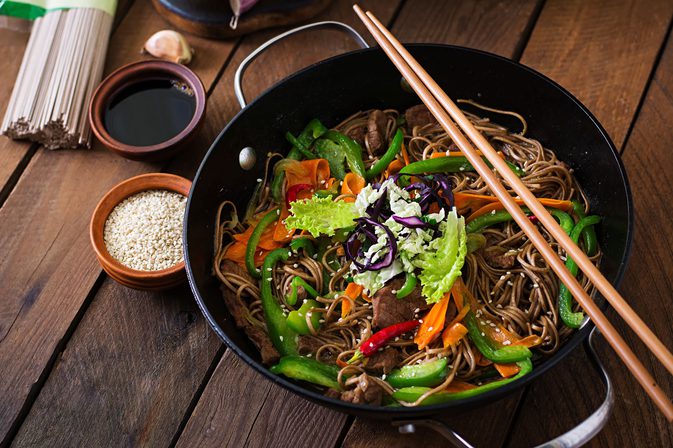
Like noodles in general, how to process buckwheat noodles is boiled. After that, drain the buckwheat and immediately rinse it with ripe cold water. When rinsed, shake the noodles slowly. This rinsing is done to maintain the texture of the noodles so it doesn't stick easily.
Next, you can cook noodles from soba like noodles in general. Made with soup, or sauteed with vegetables, eaten with peanut sauce, and so on.
What is important, during eating buckwheat noodles mix well with vegetables and other protein sources such as eggs, tofu, or pieces of fish meat.

